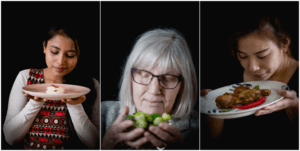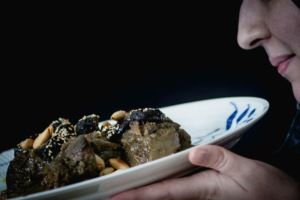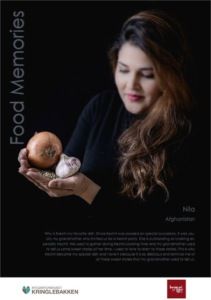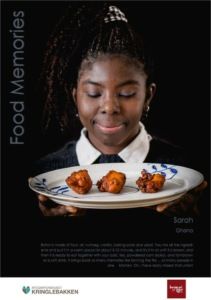Things to do
Mmmmh, integrated ginger: Weaving lives together with food memories
This article is more than 8 years old.
The women of Integrationshuset Kringlebakken’s language school are using recipes and sense memories from their homeland to immerse themselves into their new lives in Denmark

Sweet memories, and maybe a few bitter ones (all photos: Mayra Navarrete)
What does grandma’s famous kechri recipe from Afghanistan, a cooked plate of chicken adobo that produces a memory of farmlands in the Philippines, or even the aroma of an omelette that reminds one woman from Pakistan of her father have to do with Danish integration? For some, not much, but for the women of Integrationshuset Kringlebakken’s language school, the recipes and aromas that invoke memories of their homeland mean empowerment and adapting to Danish life.
In a series of writing workshops conducted during Danish language classes at Kringlebakken, a centre for integration for women and children, immigrant women from all backgrounds were encouraged to write about their fondest memories of creating, smelling, or even being around food from their home countries.
The writing – which is now being showcased at ‘Food Memories’, an exhibition organised in collaboration with Immigrant Art – has been central to their Danish language education and enabled the women to utilise the new Danish writing and speaking skills they acquired at Kringlebakken.
The leaders of the workshop, Hannah Aas Tryel and Sacramento Rossello, wanted to use food as a form of expression to show that the women could use elements of their old life in order to adapt to their new lives in Denmark.
Finding and outlet for foreigners
Denmark can be a challenging place for immigrants to find a voice, but these women wanted to apply the knowledge they’ve learned in their Danish classes to educate Danes about foreigners and foreign integration.
“We wish to create awareness about women with non-Danish ethnic backgrounds. It is our hope that the exhibition and life stories will contribute to more openness and curiosity and give a more nuanced image of foreign women,” explained Integrationshuset Kringlebakken.
‘Food Memories’ is an ongoing showcase at Nordvest Bibliotek on Rentemestervej 76 and is part of an awareness campaign for International Women’s Day. The exhibition features portraits of each woman by Mayra Navarrete and their accompanying short stories.
‘Food Memories’ is currently being developed into a full-length publication, so check the bookshelves in Denmark soon.













































